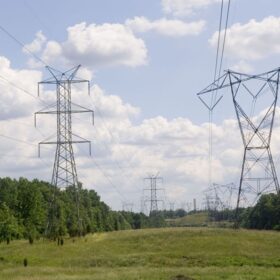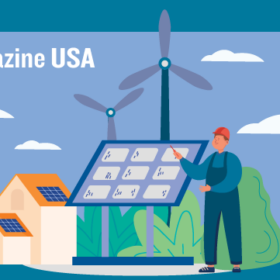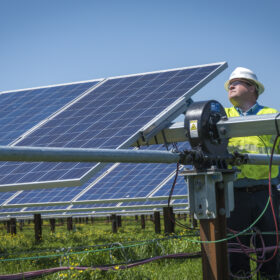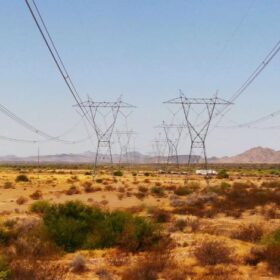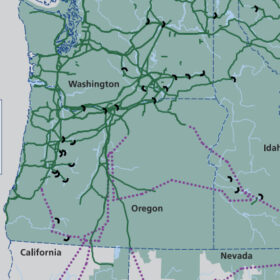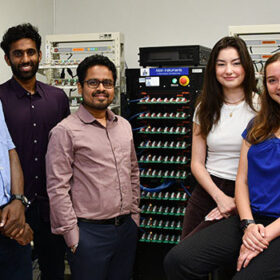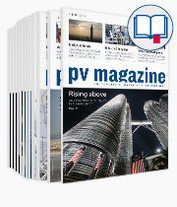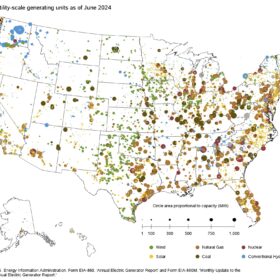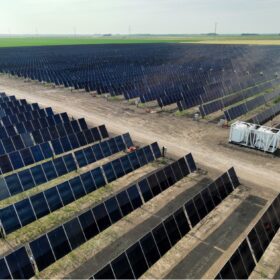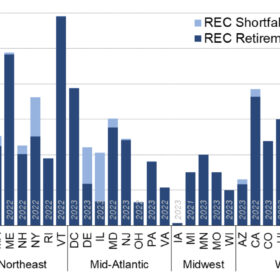Maine may design a distribution system operator to advance distributed energy resources
Maine has hired a consulting firm to evaluate whether forming a distribution system operator could speed deployment of distributed energy resources and support other state goals. Consultants are reviewing how the approach is used in five other countries.
Sunrise brief: Utility-scale solar far less costly than the cheapest fossil fuel source
Also on the rise: Five Puerto Rico reservoirs could host 596 MW of floating solar. Weather-related damage to solar assets exceed modeling expectations by 300%. And more.
Flexible interconnection with curtailed output can benefit everyone, analyst says
Allowing flexible interconnection for large solar projects can reduce costs and speed deployment, benefiting developers, ratepayers and utility staff, said a presenter at a North Carolina conference of utility regulators.
U.S. commercial real estate to host VPP-connected flywheels and batteries
U.S.-based technology provider Torus has agreed to supply nearly 26 MWh of energy storage for Gardner Group’s commercial real estate portfolio. The project will integrate battery and flywheel energy storage systems (BESS, FESS) with Torus’ proprietary energy management platform.
A new federal transmission rule won’t help renewables projects anytime soon
Although promptly deploying grid-enhancing technologies and advanced conductors could speed interconnection in the short term, a new federal transmission rule will improve interconnection only once new transmission is built, said panelists on a webinar.
Sunrise brief: California community solar in peril
Also on the rise: Technology-neutral proposed tax credit called ‘game-changing policy’. Less than 3% of farmland could power the Midwest. And more.
Grid analysts challenge Bonneville Power’s pace in adopting advanced conductors
As the White House encourages utilities to use advanced conductors to help interconnect new renewable generation, the federally-owned utility Bonneville Power is moving slowly to use the high-capacity conductors, analysts said.
Texas is the proving ground for a new way of electric grid operation
Texas is uniquely suited to adopt virtual power plant technology due to its competitive, deregulated market. Its success highlights the “perverse incentive” of vertically integrated utilities in other states to make capital expenditures without discretion to raise profits.
Bringing lithium-sulfur batteries closer to commercialization
Researchers at the University of South Carolina have successfully transitioned their highly-durable lithium-sulfur battery technology from coin to pouch cells and reported competent energy densities.
FERC transmission rule to shore up the nation’s power grid
The ruling, which is being praised by industry groups, is the first time in more than a decade that the Federal Energy Regulatory Commission has addressed regional transmission policy as well as the need for long-term transmission planning.
